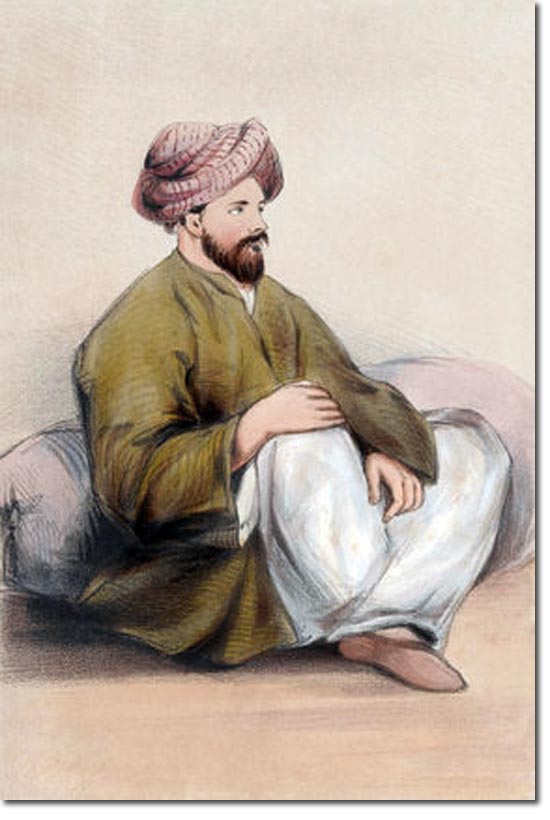|
|

 |
|
Disguised as a holy man, he travelled via Peshawar to Kabul and Herat. Soon after his arrival at Herat in September 1837 the city was besieged by a Persian army, which was accompanied by Russian officers. Pottinger made his services available to the ruler of Herat and set about organising the defence of the city.
In 1841 Pottinger was sent back to Afghanistan as political officer in Kohistan, a district north of Kabul. On 2 November the uprising against the British protege Shah Shuja and the British broke out at Kabul. The same day insurgents attacked Pottinger's residence at Laghman, and he fled to Charikar, the neighbouring town, which was occupied by the 4th Gurkhas, part of Shah Shuja's force. There they were besieged. the commander was killed on 6 November; Pottinger was wounded in the leg. On the 14th the Gurkhas evacuated the town, and despite great difficulties Pottinger, severely wounded, escaped to Kabul, arriving on the 15th. There, on 23 December 1841, the British envoy Sir William Macnaghten was murdered by Akbar Khan, and Pottinger succeeded to Macnaghten's dangerous post. Supplies were short and demoralization was widespread; the British-Indian garrison, under General Elphinstone, was helplessly inactive, and against his better judgement and advice Pottinger negotiated the British-Indian withdrawal from Kabul. On 6 January 1842 the retreat began towards Jalalabad, but Akbar detained Pottinger as one of three hostages. He thus escaped the massacre in which the retreating army was destroyed. He was kept prisoner at Kabul until Major-General Pollock's army arrived there on 17 September 1842, and returned with it to India in October. His services received scant recognition from the new governor-general, Lord Ellenborough, who was hostile to those involved in the Afghanistan disaster. However, the court of inquiry exonerated Pottinger and praised his character and conduct. |
First Afghan War | Significant Individuals
Armed Forces | Art and Culture | Articles | Biographies | Colonies | Discussion | Glossary | Home | Library | Links | Map Room | Sources and Media | Science and Technology | Search | Student Zone | Timelines | TV & Film | Wargames
